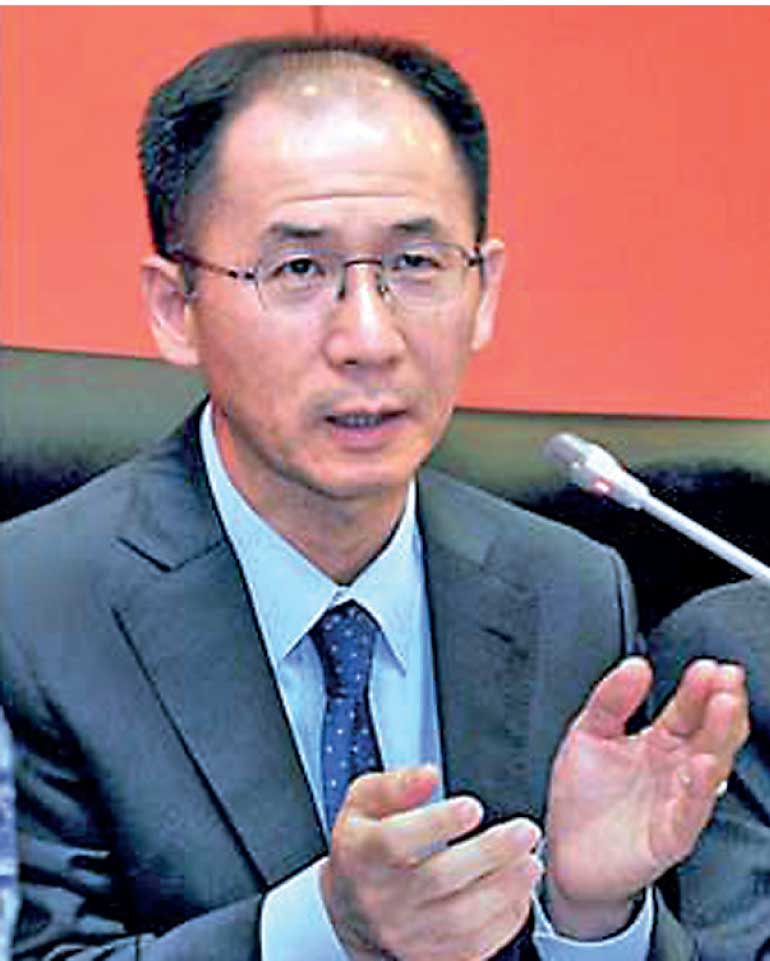Friday Feb 13, 2026
Friday Feb 13, 2026
Monday, 24 July 2017 01:31 - - {{hitsCtrl.values.hits}}
 IMF’s Jaewoo Lee
IMF’s Jaewoo Lee
By Uditha Jayasinghe
Sri Lanka may need to underscore its fiscal consolidation by “re-pacing” structural reforms, including implementing transparent energy pricing and tightening policy rates, a top official of the International Monetary Fund (IMF) said, assuring macro prudential measures would not slow growth for this year.
Following the release of the second tranche of the $ 1.5 billion Extended Fund Facility (EFF), the Head of the IMF staff team Jaewoo Lee said the Government has “over performed” on fiscal consolidation targets and addressed reserve challenges from about March 2017, putting it on a solid footing regarding the program.
“Overall fiscal performance has been very robust. It has been steadily improving in line with the program or even over performing targets. Going forward Sri Lanka has to ensure further progress is made on structural reform, which again leads to medium-term fiscal consolidation and greater exchange rate flexibility, would be helpful in not only increasing reserves but also strengthening the resilience of the economy,” Lee said.
Among the achievements made in the lead-up to the second review has been the publication of corporate intent agreements with state-owned enterprises, which can provide a foundation for greater transparency and accountability, he added. Overall the program stays true to its original intent which was to help the reform agenda of Sri Lanka, including the Government’s goal of reaching the deficit target of 3.5% of GDP by 2020.
Responding to questions on the IMF flagging energy prices in a press statement released on the completion of the second review, Lee noted it is not the intention of the program to try and touch upon every aspect of the economy. He recalled that the Sri Lankan Government had focused on automated energy pricing as an important reform aspect to reduce losses of the Ceylon Petroleum Corporation (CPC).
“This has been slower than originally intended and how to re-pace that reform is under discussion and this is one area where the details of discussions with officials will be mentioned in the Staff Report.”
However, Lee was adamant that delays in state-owned enterprise (SOE) reform would not adversely impact goals set out by the EFF program at present.
“Currently the nature of these structural changes has a certain element of unpredictability and that is part and parcel of these efforts because situations change and unforeseen things happen when you actually try to execute reform. Yes, it would be better if some steps were faster but we are not concerned by the delays because the collective view is that progress is desirable but it does not pose a serious concern to the progress of the program at this stage.”
He was also optimistic that another round of policy tightening would not shrink growth, which the IMF has broadly put between 4.4% and 5% for 2017.
“In our growth forecast we are in the proximity of World Bank numbers and we believe growth this year will be stronger than last year because of sectors such as construction that have continued to display robust growth. But at the same time inflation and credit growth have been on the high side and the Central Bank is also concerned of this but it is a matter of judgment to see how long should we be waiting for things to take the natural course or is it better to take stronger policy action. That is where the discussion is at the moment between us and the authorities and it is possibly desirable to have more tightening now and it can come through various ways including through prudential macroeconomic policies.
“We expect growth to be higher than last year but 5% growth is ambitious. We think there is enough impetus in the economy. Of course we are not talking about draconian tightening; we just want them to be a little bit more proactive in trying to counter underlying pressure for inflation and credit growth.” The Central Bank has adopted a “wait and see” policy as mentioned in the institution’s latest monetary policy report but Governor Dr. Indrajit Coomaraswamy has consistently stated the Central Bank stands ready to increase rates if necessary.
The IMF was also strongly positive of the Inland Revenue Bill being presented in Parliament earlier this month and expressed confidence that it would improve public revenue significantly.
“The new legislation will provide a solid foundation for continuing fiscal consolidation, including by making the tax system more efficient and equitable, which will then be able to provide resources for further social and developmental programs.”